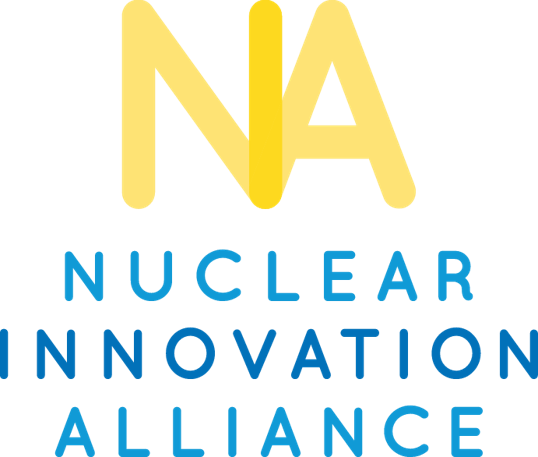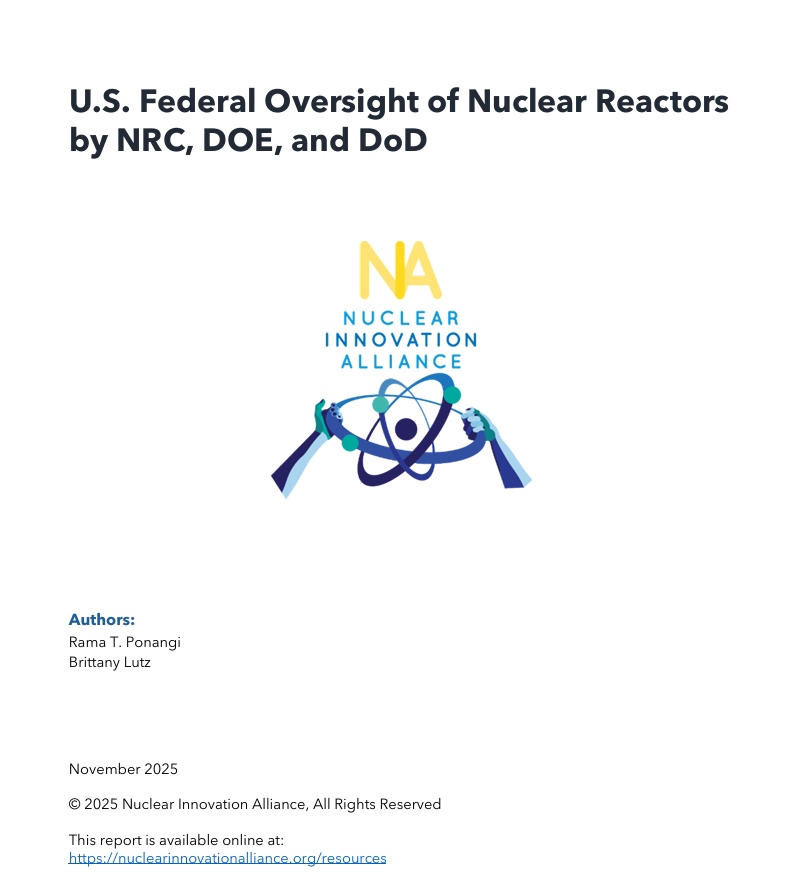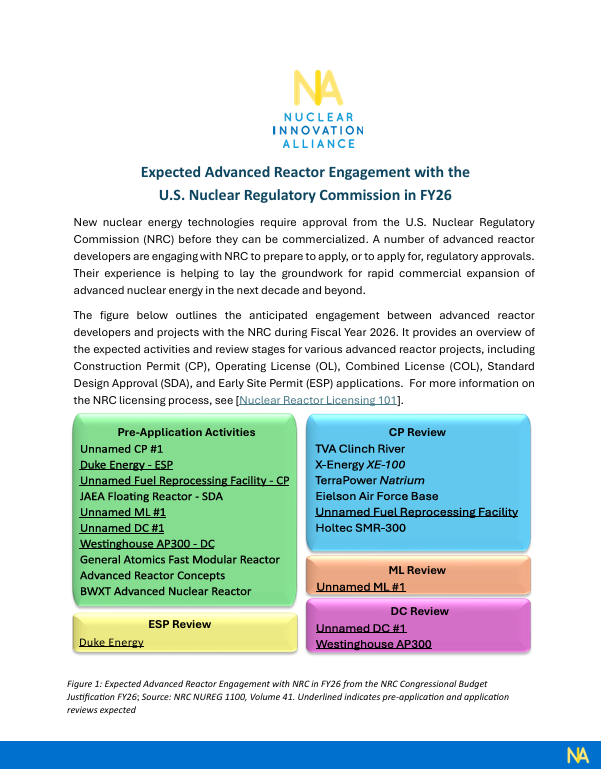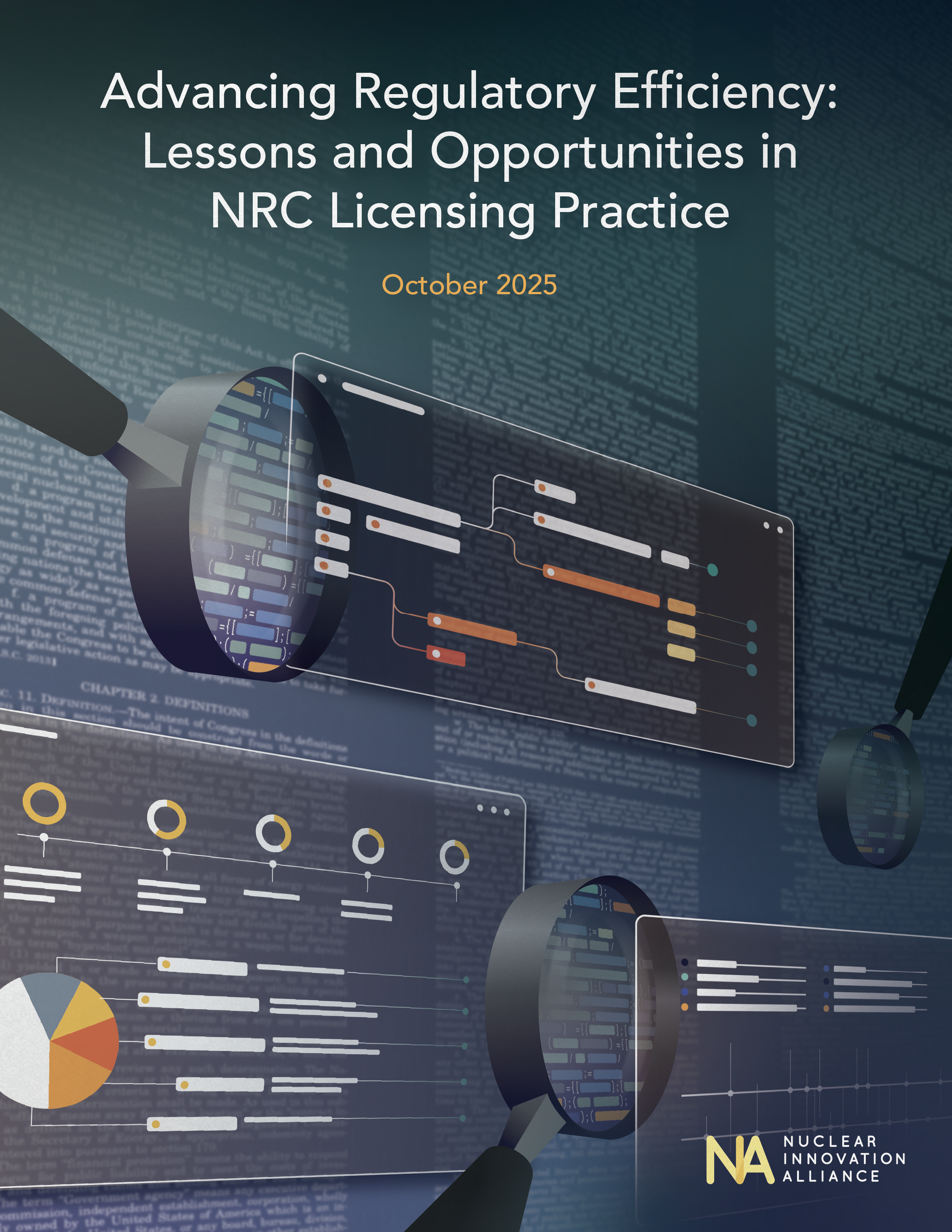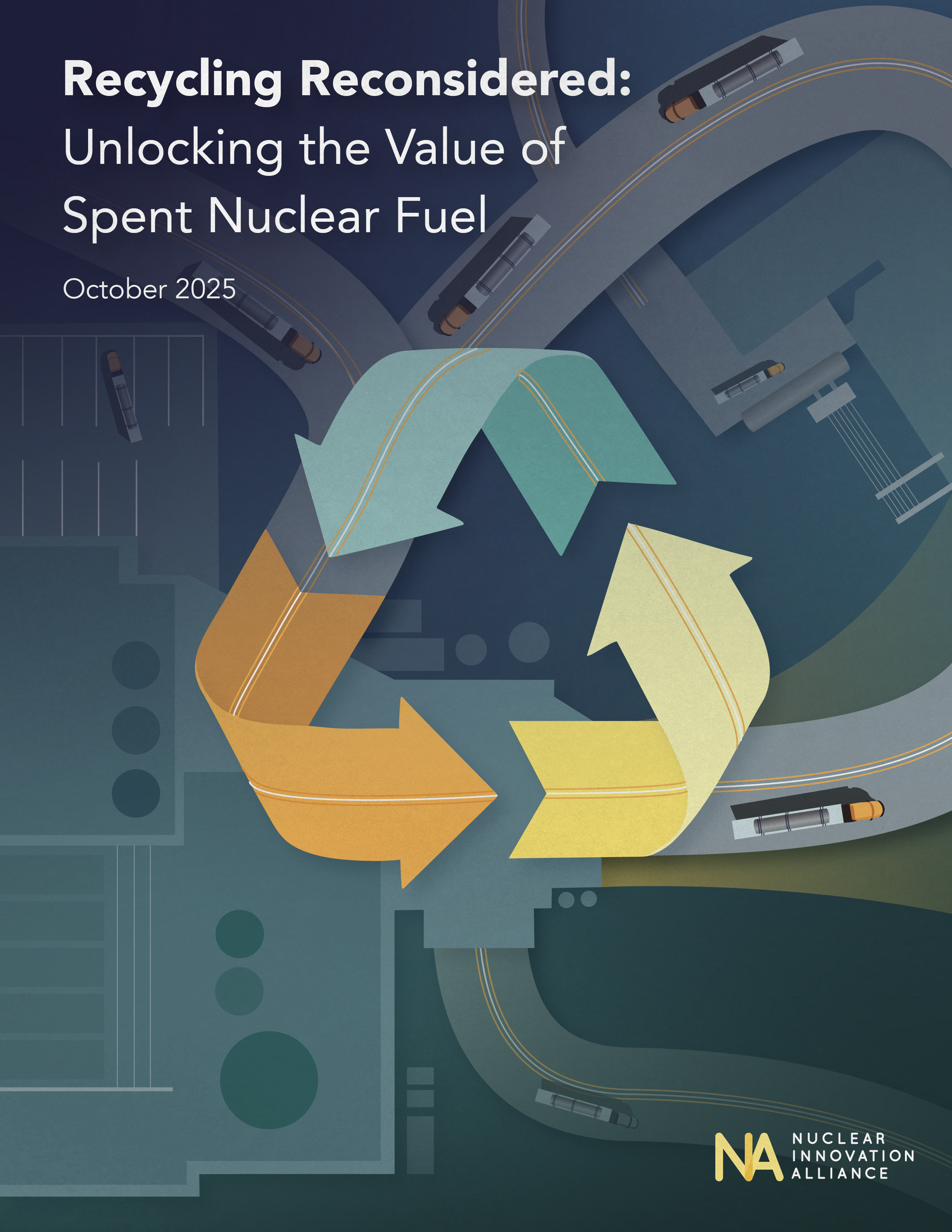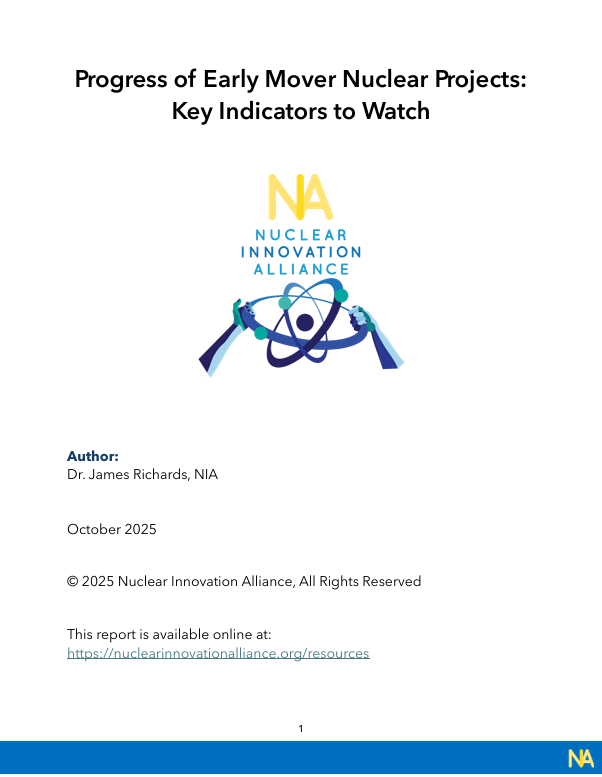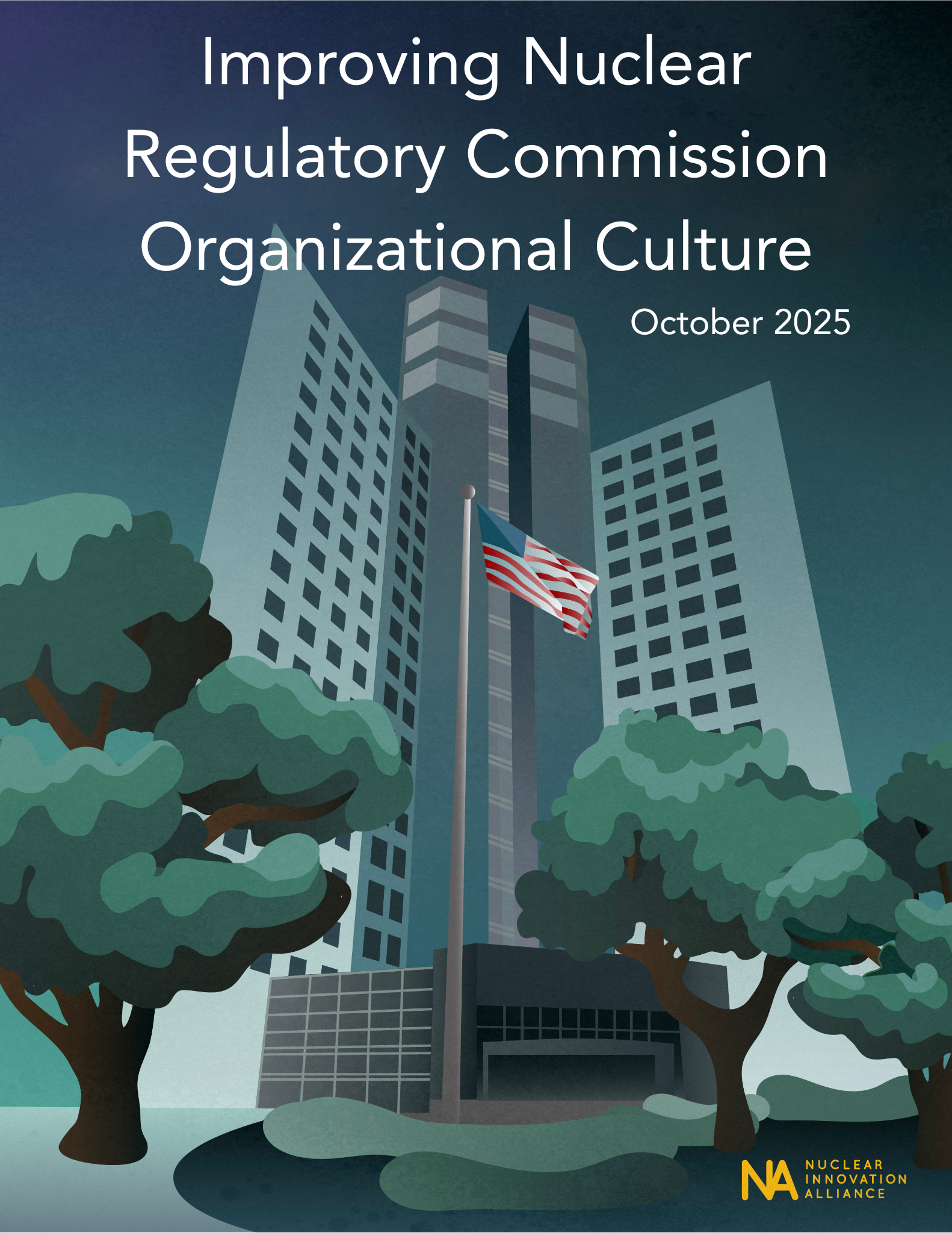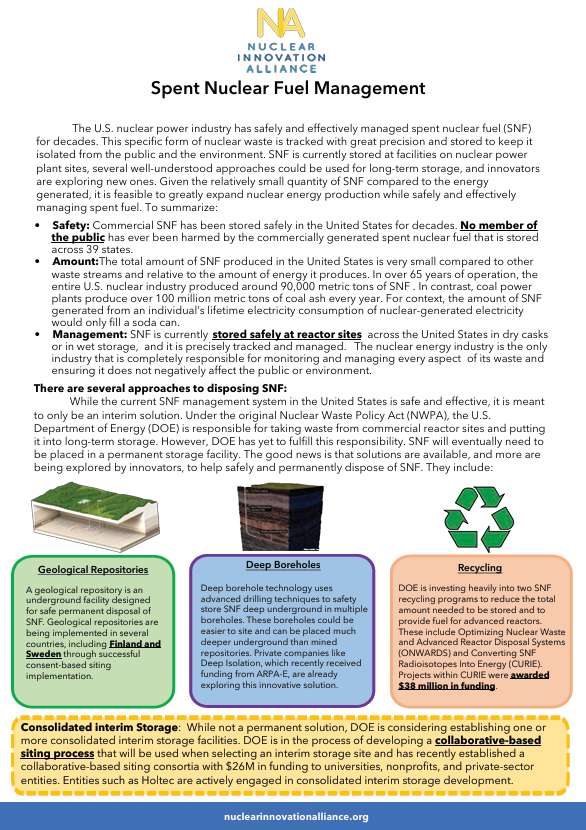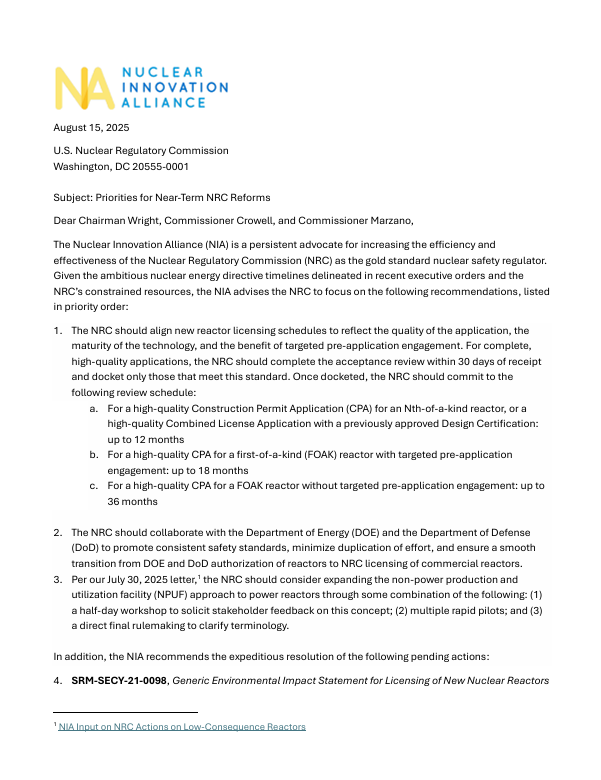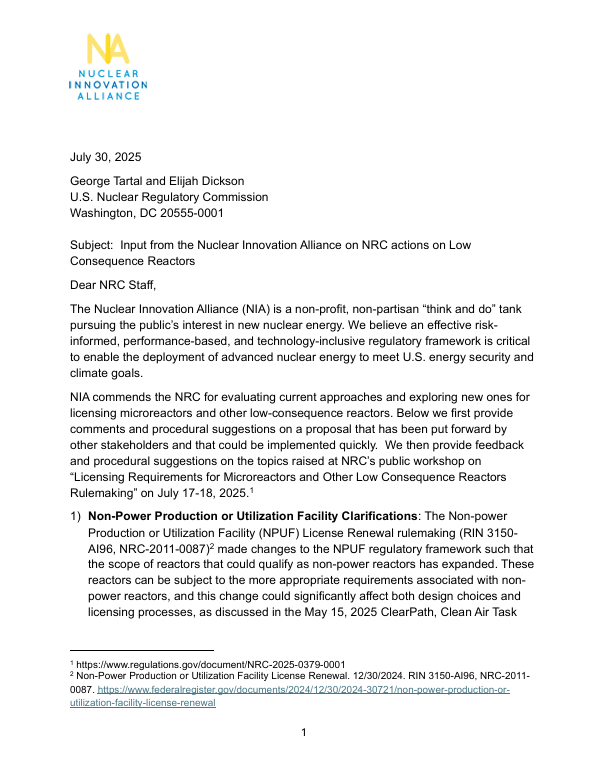The Nuclear Innovation Alliance hosted a publication webinar for our updated Advanced Nuclear Energy Technology Primer and Company Compendium, with speakers Zach Koshgarian of NIA, Judi Greenwald of NIA, Scott Kopple of BWX Technologies, Jeff Miller of Terrapower, and moderator Ben Finzel.
These updated reports provide information, resources, and insights into advanced nuclear technology innovation and commercialization. They should serve as resources for investors, reporters, policymakers, regulator,s and others who want to learn more about advanced nuclear technologies and the key players building this industry. With increasing attention being paid to supporting the technologies required to meet mid-century climate goals, these resources should serve as helpful guides to understanding the basics of advanced nuclear energy technology and the companies involved in the design, licensing, construction, and operation of advanced nuclear reactors.
To download our Company Compendium click here
To download our Primer click here
U.S. Federal Oversight of Nuclear Reactors by NRC, DOE and DoD
Federal oversight of nuclear reactors in the United States sits at the complex intersection of law, national security imperatives, and civilian regulatory independence. This brief examines the legal and historical context, tracing the statutes that assign authority for NRC to license and regulate commercial nuclear reactors, DOE to “authorize” nuclear reactors for research activities, and DoD to permit the operation of nuclear reactors for military use. It also explores interagency interfaces, agreements, and delegations, which shape the coordination of nuclear reactor oversight.
NIA recommends a concerted effort by all three agencies to ensure that technically mature, new nuclear reactor concepts are deployed with appropriate federal oversight and regulatory clarity to inspire public confidence.
Expected Advanced Reactor Engagement with the U.S. Nuclear Regulatory Commission in FY26
This updated NIA fact sheet highlights the expected advanced reactor engagement with the NRC in fiscal year 2026
Advancing Regulatory Efficiency: Lessons and Opportunities in NRC Licensing Practice
The NRC is already experimenting and making improvements in reducing licensing review times without changing the diligence or substance of its evaluations, and the results are promising. If the projected volume of applications materializes, the NRC will need to continue to apply the new approaches it has begun using, as well as seek out additional efficiencies. This paper lays out actionable recommendations on what NRC can do now—under existing statutory authority—to further compress schedules while preserving safety, due process, and analytical quality.
This report highlights the commercial, political, and social value proposition of spent nuclear fuel (SNF) reprocessing and recycling in today’s nuclear energy landscape and recommends policy changes that can help accelerate private sector reprocessing and recycling efforts to realize societal benefits.
Progress of Early Mover Nuclear Projects: Key Indicators to Watch
The nuclear energy industry has gone through phases of growth and contraction throughout the 21st century. Currently, there is a resurgence in nuclear energy interest, with numerous funding rounds, project announcements, and partnership agreements in the last decade. Amid all the fervor, it can be difficult to assess the viability and maturity of individual projects and to evaluate industry progress as a whole. This document discusses several key indicators of progress that stakeholders and investors can use to assess a nuclear project’s likelihood of successful completion. These indicators include:
- Site selection
- Licensing progress
- Offtake agreements
- Project team
- Funding
Improving Nuclear Regulatory Commission Organizational Culture
In spring 2025, the Nuclear Innovation Alliance (NIA) held a workshop and conducted one-on-one interviews to discuss internal dynamics affecting the Nuclear Regulatory Commission’s organizational workplace culture. The workshop participants and interviewees included former NRC Commissioners, senior leadership, and staff. Based on these discussions, NIA synthesized the findings into five pillars, each containing actionable recommendations. The five pillars include:
- Accountability, Autonomy, and Alignment
- Leadership Development and Qualifications
- Differing Professional Opinions, Concurrence Processes, and Interactions with the Office of General Counsel
- Employee Retention
- Recruitment.
Factsheet on Nuclear Waste
NIA published a fact sheet about nuclear waste and innovative methods for its safe and long-term management. This fact sheet demystifies nuclear waste, outlines existing management methods and highlights developments and innovations in the field of nuclear waste management.
This factsheet is part of a series of NIA publications that provides essential insights for those newly exploring nuclear energy as well as those seeking concise information crucial to nuclear energy innovation and deployment.
This letter from NIA advises the NRC to focus on 19 regulatory reform recommendations in the near term, given the ambitious nuclear energy directive timelines delineated in recent executive orders and the NRC’s constrained resources.
In these comments, NIA commends the NRC for evaluating current approaches and exploring new ones for licensing microreactors and other low-consequence reactors. We first provide comments and procedural suggestions on a proposal that has been put forward by other stakeholders and that could be implemented quickly. We then provide feedback and procedural suggestions on the topics raised at NRC’s public workshop on “Licensing Requirements for Microreactors and Other Low Consequence Reactors Rulemaking” on July 17-18, 2025.
